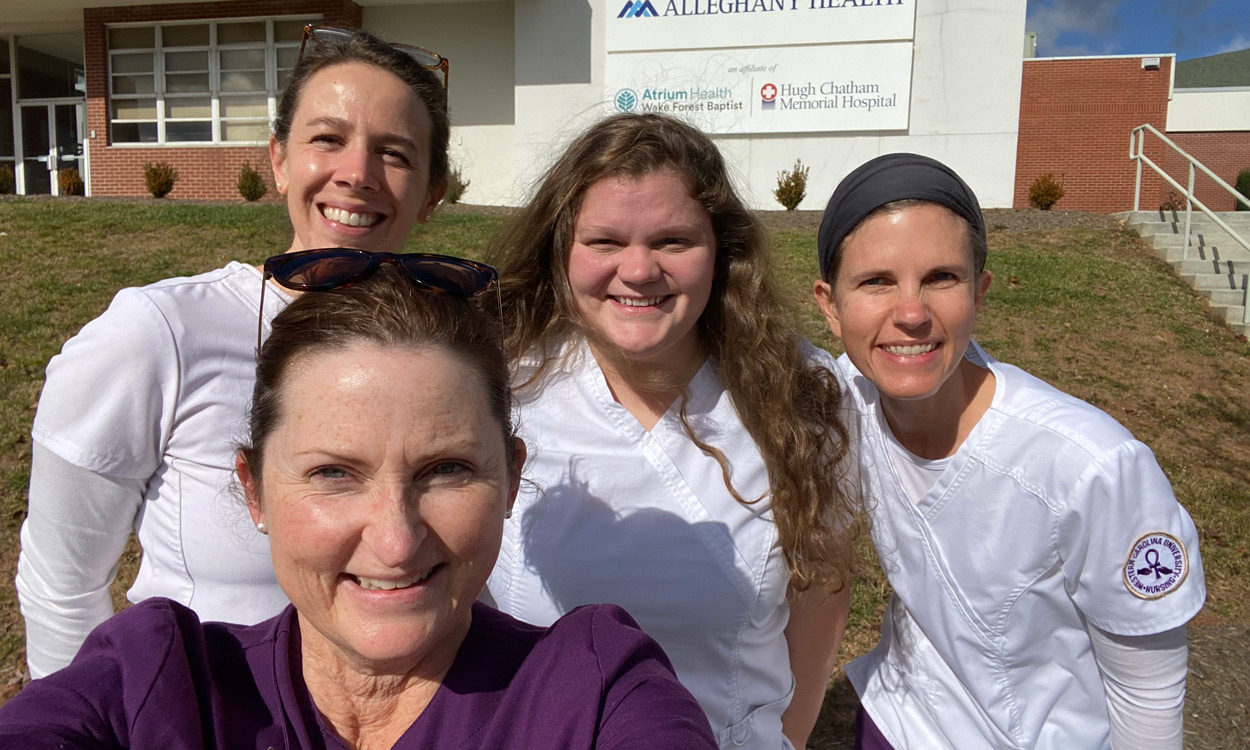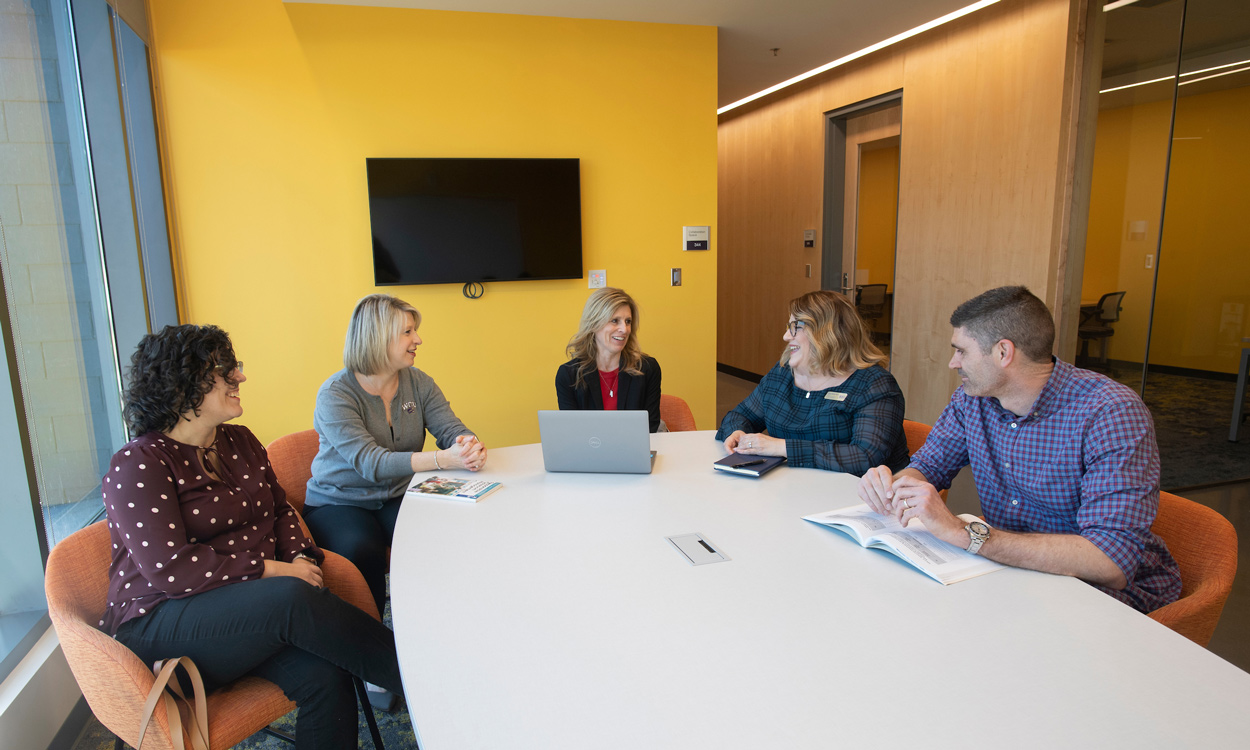School of Nursing explores rural nursing at critical access hospital
By Julia Duvall
Kae Livsey, professor, and nursing students enrolled in the RNPC internship spent three days in Sparta this fall and were exposed to a variety of care settings as part of their capstone clinical course.
There was already a nursing shortage when the COVID-19 pandemic gripped the health care field and made a bad situation worse.
Rural or urban, no health care setting was immune from the effects the pandemic had on facilities not having enough nurses to care for patients. Critical access hospitals in rural areas were especially challenged.
Alleghany Health, a critical access hospital in Sparta, needed staffing support when they reached out to the North Carolina Area Health Education Centers.
Through an existing partnership with NCAHEC, Alleghany Health was connected to Kae Livsey, a professor in Western Carolina University’s School of Nursing and principal investigator for the RNs in Primary Care project.
The School of Nursing was able to develop an academic practice partnership with Alleghany Health through this connection.
“Being able to expose future nurses to the needs of rural communities is paramount in addressing the nursing distribution challenges we face in North Carolina,” said Livsey.
The RNs in Primary Care project is a Health Resources and Services Administration-funded program to expose nursing students and nurses to primary care focused practice and build skills in care coordination.
WCU students enrolled in the RNPC internship spent three days in Sparta this fall and were exposed to a variety of care settings as part of their capstone clinical course.
Hannah Pendley, a senior from Morganton, was able to see a patient from intake to discharge during the internship.
“It was great to be able to follow a patient from primary care all the way through discharge from the hospital,” said Pendley. “I got to see every step of the process and the continuity of care is amazing. With everything being housed in one building it makes it that much easier for the faculty to communicate patient needs and made finding pertinent patient information so much easier.”
This internship helped students understand the challenges and benefits of critical access hospitals in rural areas.
“Our students were able to engage with staff across primary care, emergency room and inpatient settings,” said Livsey. “They found the experience to be beneficial and some indicated that they could see themselves practicing in a similar rural setting.”
Not only did the students gain experience and skills during this internship, but the staff at Alleghany Health were able to learn from the students as well.
“Working with the WCU faculty and administration was one of the most pleasant experiences I have had as a hospital administrator,” said Kathryn Doby, CEO of Alleghany Health. “Having the WCU students on site was a simply wonderful interactive experience. For our employees, it was energizing to teach and to guide, but just as importantly to listen and learn from the students. The entire experience allowed us to deliver the best patient and family-centered care possible in this small rural setting.”
For more information about the School of Nursing, visit nursing.wcu.edu.

